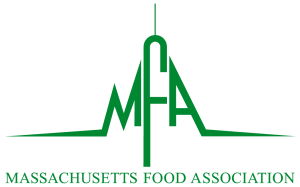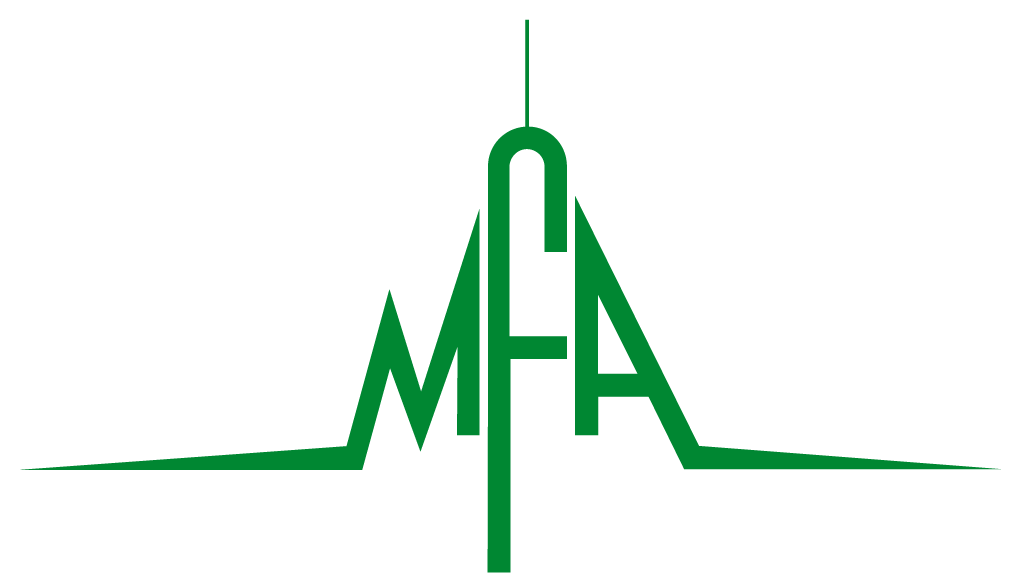
ANNUAL REPORT 2020 – 2021
As the COVID-19 pandemic continued to
spread worldwide from 2019 into 2020, the Massachusetts legislature was
struggling to start a new two-year session and begin its hearing process. This situation was even further exacerbated
when the State House closed to the public March 10, 2020. The filing deadline for legislation to be
introduced in the 192nd General Court of the Commonwealth of
Massachusetts was extended by one-month allowing more time for the transition
of new and present legislators. To date
more than 4,500 bills have been proposed in the House and nearly 2,800 in the
Senate. The Massachusetts Food Association is
tracking approximately 300 of these proposals that could affect our
industry. The House also chose a new Speaker in Representative Mariano
after Representative DeLeo resigned his position as Speaker after serving from
2009 to 2020. New leadership and Chair
positions were also filled. The
legislature continues to meet “virtually” and may do so through the end of the
calendar year. MFA will continue to
monitor the legislature and all regulatory activity as hearings, meetings and
discussions have all gone virtual. Below
is a report on all legislative and regulatory issues the association has filed
and dealt with over the past year beginning with a COVID-19 update:
COVID 19 UPDATE
When
a pandemic was declared at the
beginning of March 2020, Governor Baker declared a State of Emergency after the
State House and all government agencies closed.
Defined as essential workers, our industry continued to operate while under
strict federal, state and local conditions.
MFA continued to focus most of its’ work and attention towards
advocating for our industry on any and all issues related to COVID that would
affect us including discussions with the MA Department of Public Health (DPH),
Executive Office of Labor & Workforce Development, MA Emergency Management
Agency (MEMA), Office of Consumer Affairs and Business Regulations (OCABR),
Division of Standards (DOS), Department of Family Medical Leave (DFML), etc., all
while preparing for the new session.
This included advocating for vaccine priority for our industry’s essential
workers, the continuation of state and local guidance and orders, and
individual and collective issues as they arose.
MFA remained in constant discussion with the Baker administration and
state officials as the state of emergency was lifted in June on issues such as senior
hour requirements and the prohibition of self-serve stations, which both expired
as the emergency was lifted.
MFA
continues to advocate on behalf of the industry at local, state and federal
levels as the pandemic continued through the summer and into the fall. By working closely with legislative counsel,
MFA is in constant communication with the administration, Departments and
agencies and local officials to represent our industry on all levels.
LEGISLATIVE UPDATE
Although off to a slow start, the legislature has been holding
virtual public hearings as legislative proposals progress through the
legislative process. Governor Baker has
also signed a new fiscal year 2022 state budget spending plan into law. Legislative proposals filed by the
Association for the present two-year session include the following:
·
H376 – An Act relative to retail sales. This legislation would once again allow grocery
stores/departments to sell food items by the piece with proper signage, weight
requirements and disclosure. This would
include pre-weighed items such as uncooked fish, mixed items such as stews,
meat, poultry, etc. Hearing held August
2, 2021.
·
H458 – An Act to promote alcohol storage space. This legislation would allow a food store to
stock its licensed alcohol products for off-premise consumption sales in an
off-premise bonded warehouse. Hearing
held June 14, 2021.
·
H1588 – An Act relative to the theft of bulk merchandise
containers. This legislation establishes penalty
provisions for the theft of such containers.
Hearing TBD.
·
H372 – An Act restricting the sale of certain items at flea
markets. This legislation establishes penalty
provisions for the sale of certain items at flea markets. Hearing held August 2, 2021.
TESTIMONY
SUBMITTED TO DATE THIS YEAR:
· OPPOSE – REQUIRES
ENTIRE STORE CLOSING FOR LIQUOR VIOLATION (H392));
· OPPOSE – IMPOSES
SUGAR-BASED BEVERAGE TAX (H2529/S1709);
· SUPPORT –
STATEWIDE
PLASTIC BAG BAN (H902);
· SUPPORT –
AMENDMENT
TO CAGE-FREE 2016 LAW (H864, S36, S2481, S2470);
· SUPPORT –
RETAIL
SALE OF CERTAIN UNCOOKED FOODS BY-THE-PIECE (H376);
· SUPPORT –
OFF-PREMISE
ALCOHOL STORAGE SPACE FOR FOOD STORES (H458).
LEGISLATIVE
ISSUES TO DATE THIS YEAR
SALE BY THE PIECE – Legislation
sponsored on behalf of the association (H376) would
allow food stores/departments to sell meat, poultry, seafood and combined
ingredients by the piece, count or serving as opposed to the present limit that
restricts sales to only weight. This would
allow retailers to market servings by the piece or serving, such as fish, meat,
seafood products or other certain products for a set price per serving. This was previously allowed under the former
Director of the Division of Standards interpretation of the law, however a
change in the law is needed to officially allow this practice of sale in MA. A public hearing was held August 2 at which
MFA submitted testimony.
LIQUOR LICENSING – MFA formed a Liquor
Sub-Committee for the new legislative session and continues to monitor the
progress of liquor legislation through the session. The state licensing limit is presently set at
9 licenses per entity, the association supports legislation (H414) that would
increase this limit phased in to eighteen by 2030 and legislation (H318) that
would eliminate any cap on the number of liquor licenses and entity could
hold. We continue to work with the
liquor industry and the legislature to reach a compromise to increase the state
limit of nine while protecting the independent and single liquor store
operators.
PLASTIC
BAGS
– MFA continues efforts with
environmental activist groups such as MASSPIRG, Sierra Club, Surfriders, etc.,
and MA Retail Association to create a statewide plastic bag ban supported by
all groups. General consensus was
reached with all the above-mentioned groups on a proposal that would: ban
plastic bags; place a mandatory fee on paper and plastic until plastic was
phased out, with the fee remaining on paper bags; state preemption of all local
ordinances, and; adequate time for phasing in these requirements. MFA has re-grouped with the environmental and
business associations to once again work towards getting a proposal
passed. MFA will continue to strategize
with legal counsel and activist groups to gain support at the state level.
CAGE FREE STANDARDS – As of this writing, legislation
reforming standards for housing egg-laying hens, pigs, and veal calves is before
a six-member panel of three House and three Senate members assigned to reach a
compromise between the differences in both the House (H4194) and Senate
versions (S2481) of their respective proposals.
The two bills seek to update a 2016 ballot law that set standards for
the amount of space required for the animals. Both versions of the legislation allow
producers to keep hens in cages with 1 square foot of floor space if the hens
have access to vertical aviaries instead of 1.5 square feet as called for in
the ballot law. Horizontal or cage-free
egg farms will have to comply with the 1 square foot law as of January 1, 2022
to operate and have their products sold in Massachusetts. The bills differ on the implementation of
standards for raising pigs, with the House proposing to delay them until 2023. The House, unlike the Senate, also voted to
provide the Department of Agricultural Resources the power to refer violations
to the attorney general who can hand out a fine of up to $1,000. The Senate
passed the bill in June, the House in October. The legislation should be finalized before
the holidays.
MINIMUM WAGE – Massachusetts is in its third year of a five-year
annual increase in the state’s minimum wage rate, setting this year’s minimum at $13.50 per
hour rising to $14.25 next year. The original
1.5x premium pay rate for Sundays and certain holidays drops each year 1/10 of
1% until the premium rate is gone in 2023.
For 2021 it is at 1.2% and drops next year to 1.1%.
PAID FAMILY & MEDICAL LEAVE (PFML) – The, state-run
paid family medical leave program for employees allowing them to accrue paid
time off for any newborn, adoption or medical issue they, their family members
or others may have that require assistance began January 1, 2021. It does not require employers to pay any
premium towards paid family leave for their employees. New rates were calculated and reported
October 1, 2021 as required by the law.
MA STATE
FISCAL STATUS –
On July 16 Governor Baker signed a $47.6 billion fiscal year 2022 budget into
law, which increased to $48.1 billion after the legislature gave their final
approval. The state received an extra
$4.2 billion in tax revenues above expectations through the first six months of
the calendar year, and reported that for the month of September, revenue was
27% higher this year then it was in September 2020 last year, approximately
$3.99 billion or 14.3% higher than forecast.
All with the legislature deciding to put on hold any spending of the
nearly $5 billion the state has received in federal funds to date.
U/I ASSESSMENT – As
unemployment rates soared due to the pandemic, the state’s unemployment
insurance fund became insolvent, with employers seeing their April U/I solvency
assessment bills increase nearly ten-fold.
To offset the sharp increase the legislature established a new fund with
$7 billion borrowed to pay it down with employers getting twenty years to pay
back the borrowed money.
REGULATORY UPDATE
MFA continued to respond to member
inquiries, serve on numerous state advisory boards, committees, and task forces,
including:
· Alcoholic Beverage Control Commission (ABCC) – Continue
to participate in ABCC group meetings as appropriate, communication with
Executive Director ongoing and as appropriate.
· DEP’s Organics Sub-Committee
– Continue to participate on Sub-Committee as appropriate to continue organics
diversion, exploring lowering threshold of ban to those who produce ½ ton/week
of organic waste (now 1 ton), continue work with members and DEP on relevant
issues as appropriate.
· DEPT
OF TRANSITIONAL ASSISTANCE (DTA) –Maintain
relationship with the Department and staff for communication and informational
purposes, continued to work with the Department during COVID outbreak to
communicate information and respond to requests.
· FOOD
ESTABLISHMENT ADVISORY COMMITTEE (FEAC) – Continue
membership on the Committee however due to the pandemic meetings have been
suspended for the time being.
· Greater Boston Food Bank
– Advisory Committee.
· ma health connector – Continue
participation in Health Connector Advisory Council as appropriate.
· WIC Advisory Council and WIC Vendor Advisory Council
– Liaison continues between the WIC office and members on COVID and other related
issues.
· MFA
continued to serve as a liaison between members and other state regulatory
agencies and departments such as the Department of Public Health, the Attorney
General’s office, the Division of Standards and others to foster discussion and
seek resolution to situations faced by members.
· MFA
continued to work with other trade groups and industries including business
organizations (AIM, RAM) taxpayer foundations (MTF), restaurants (MRA), small
business (NFIB) and others on issues that affect all our industries, including
wages, health care, automated sales tax remittance, employee leave and benefit
proposals and other related issues through the pandemic.
LOCAL ISSUES UPDATE
Mainly due to the
pandemic, town meeting proposals to ban plastic bags, packaging restrictions,
beverage bottles, bottled water and straw bans were not as prevalent as in
previous years. However, as the round of
spring town meetings begins to pick up next year, we are sure to see more of
them being proposed. MFA continues to
utilize an alert system to identify issues as they are proposed in
municipalities; a notification process to affected members in the municipality and
procedures for disseminating testimony, information and talking points to
affected members as appropriate. MFA also
continues to work with other industry groups such as the MA Beverage
Association on bottled water bans.
EMERGENCY PREPAREDNES UPDATE
MFA
continued its participation with the Massachusetts Emergency Management Agency
(MEMA) serving as a member of its MA Emergency Support Function 5
(MAESF-5). MAESF-5’s function is to
represent the business community and the private sector, and is responsible for
providing a framework of coordination and cooperation
among public and private sector partners before, during, and after disasters,
emergencies, or planned events in Massachusetts. MEMA calls for close collaboration between public
and private sector partners over all phases of emergency management to improve
community resilience and ensure effective use of resources during
incidents. As outlined in the
MAESF-5 Business and Industry annex, the duties of the Association include:
· Provide information and situational awareness on the status,
location, needs, and available resources of food retailers, distribution
centers, wholesalers, and distributors.
· Work with member organizations to develop a list of critical
commodities that can be pre-positioned in advance of an event.
· Provide staffing for the MAESF-5 work station at the SEOC as
needed.
· Act as a conduit for providing situational awareness and
information on ongoing operations from the SEOC to member organizations.
· As requested, coordinate private sector resources to support SEOC
operations.
· As needed, obtain information from member organizations to provide
to the SEOC.
MFA continued to serve on MEMA’s
Hurricane Working Group and its Mass Feeding Working Group during the hurricane
seasons.
COMMUNICATION
· MFA
continued to serve as the leading voice of the state’s grocery and supermarket
industry, responding to media inquiries, participating in editorials and
webinars on important issues on behalf of the entire industry.
· MFA
is in constant communication with members and the public through weekly
publications, editorials, articles and publications in media outlets.
· MFA
maintained its website to keep members informed and up to date on Association
and industry related issues. In
addition, MFA continued to grow our social media platform to reach a broader
audience of the membership and beyond.
ASSOCIATION STATUS, FINANCES & SOCIAL
EVENTS
· MFA
continued to remain in a strong position both fiscally and in membership
development. MFA continued to remain
financially strong while dealing with unprecedented conditions from the
pandemic.
·
MFA continued to work with
regional and state organizations such as the Food Industry Association
Executives (FIAE), the National Associations including the Food Marketing
Institute (FMI), the National Grocers Association (NGA) and others to further
the causes of the industry.
· MFA’s
Annual Convention held “virtually” over Memorial Day Weekend was once again a
financial success for the Association and exceeded expectations in the
pandemic. Due to sponsorships and other
financial contributions the Association is in a strong financial position as
the pandemic continues.



